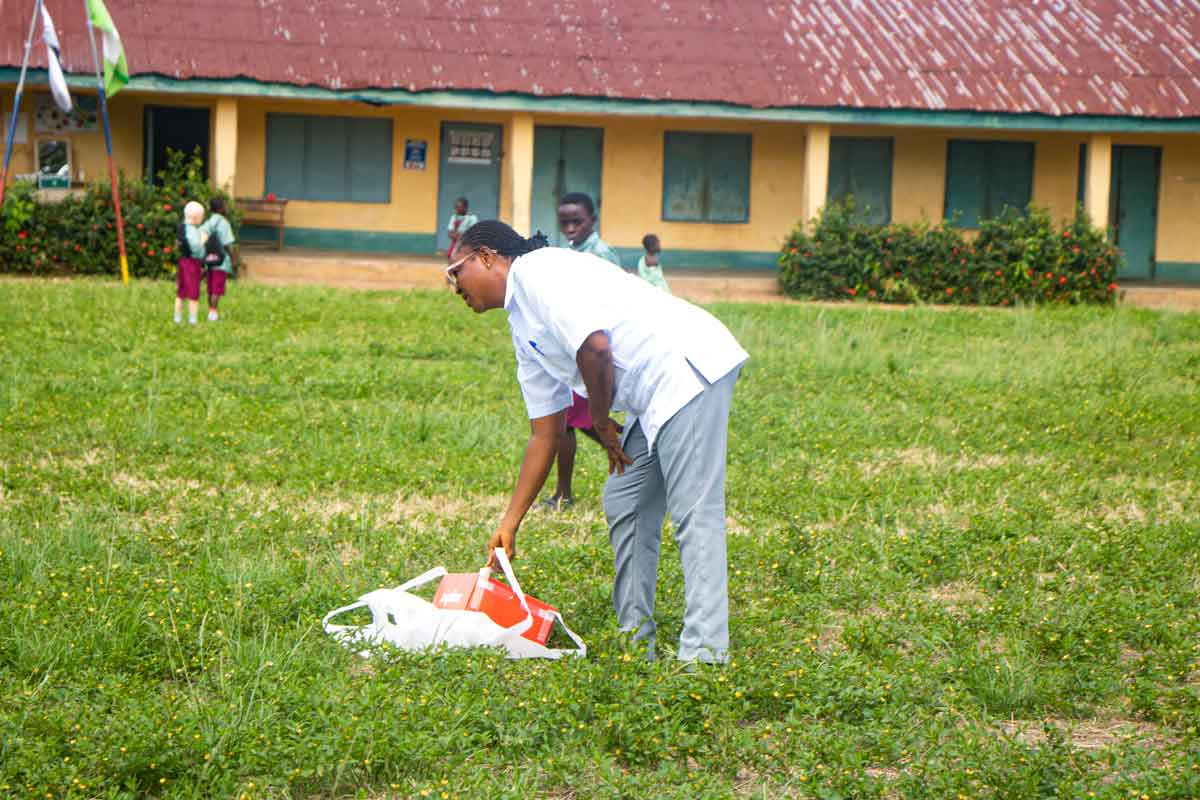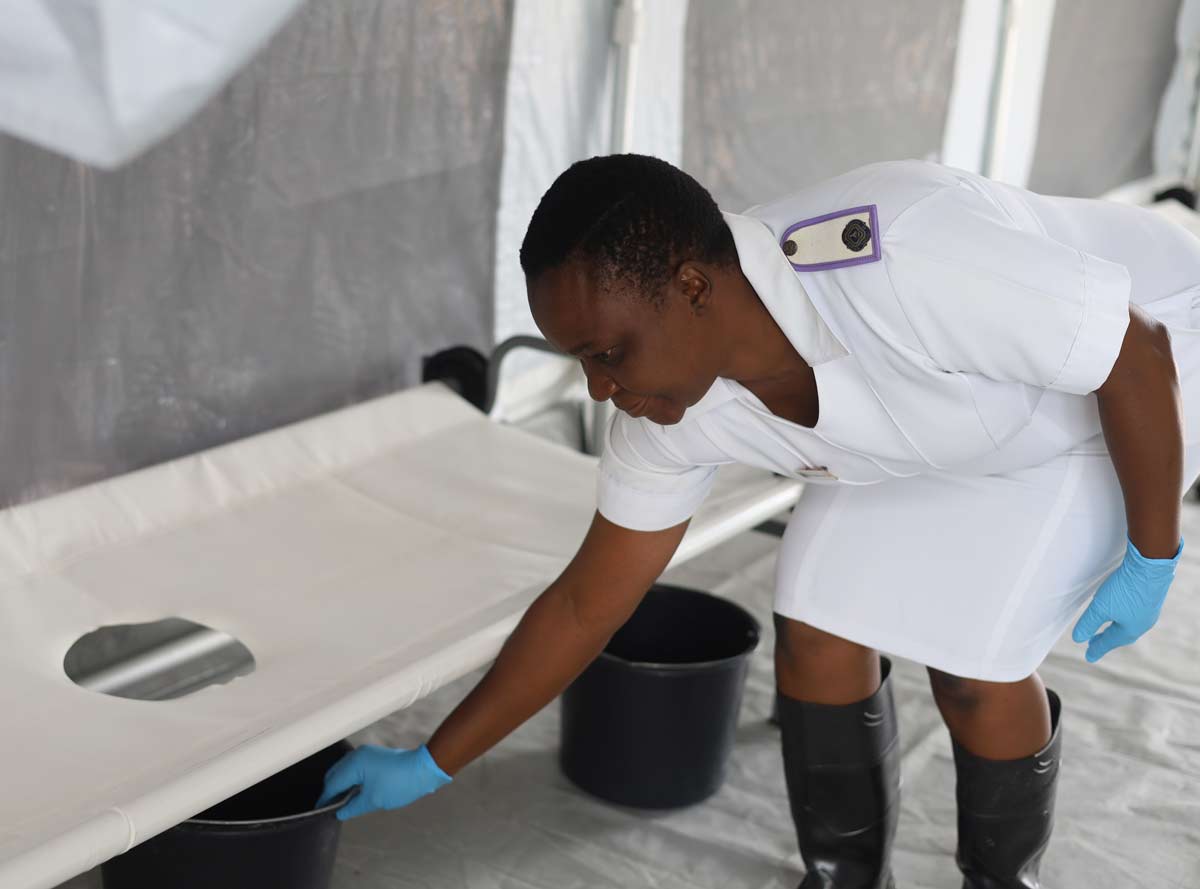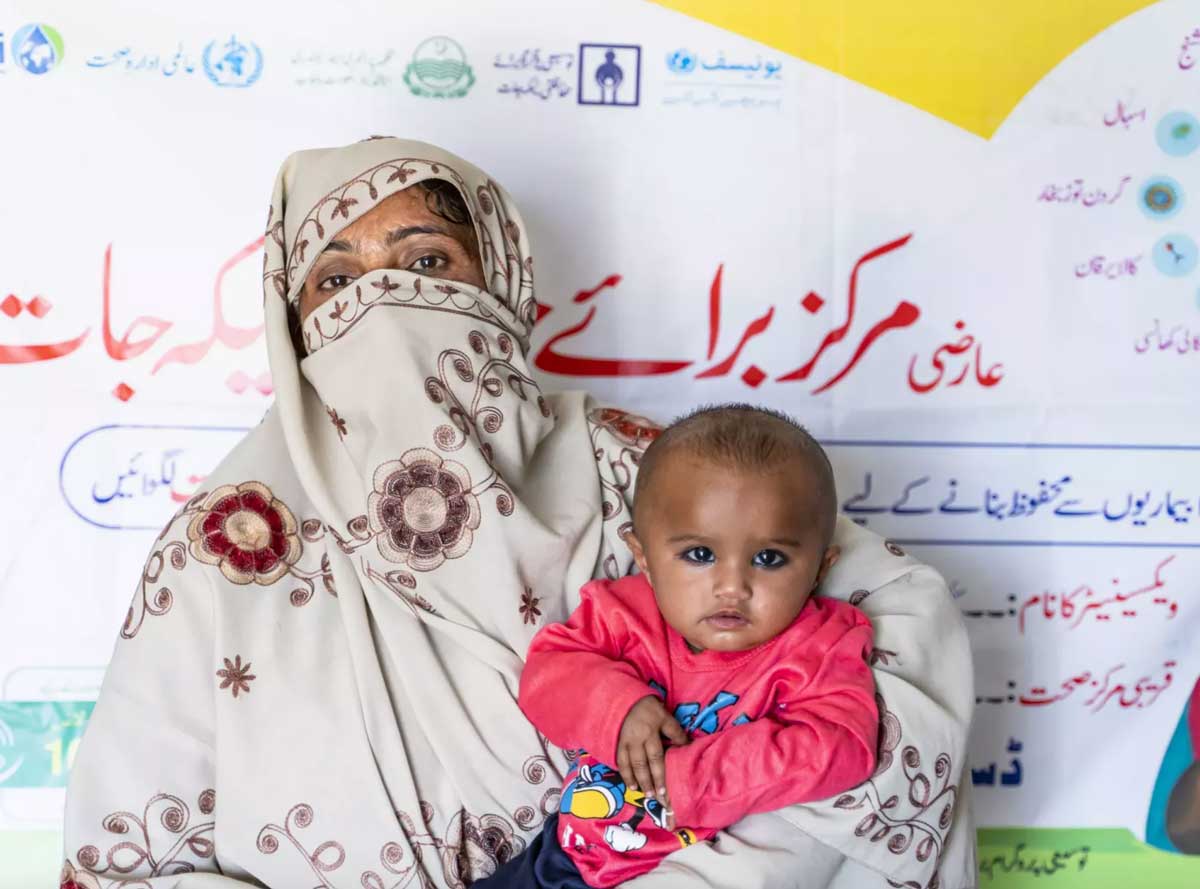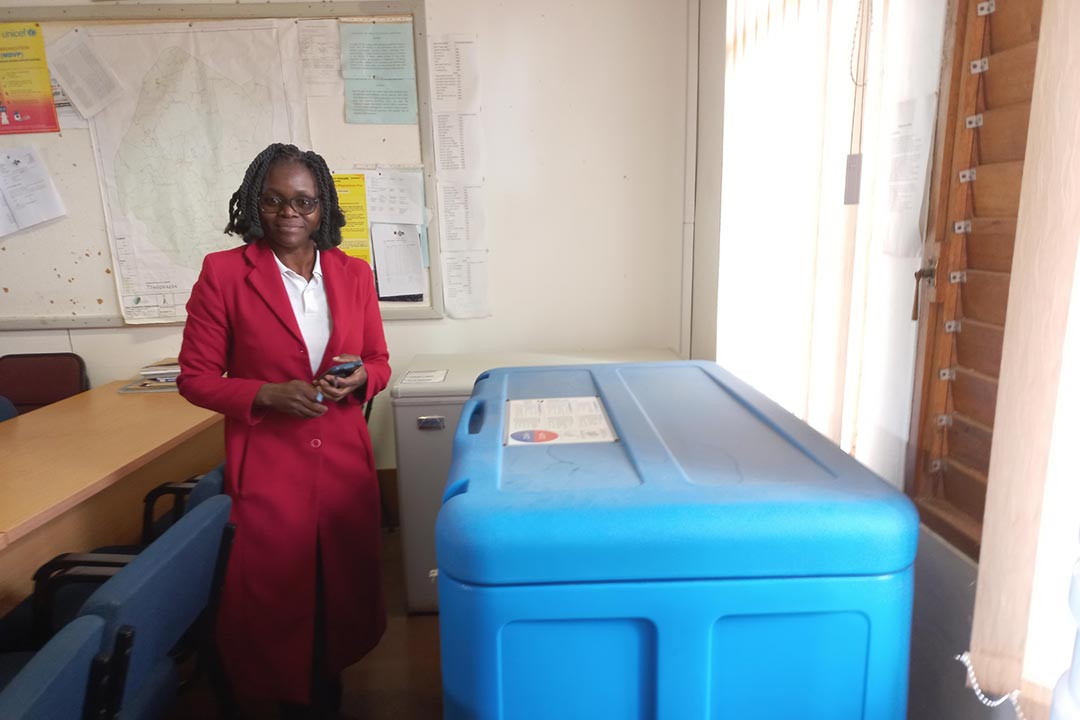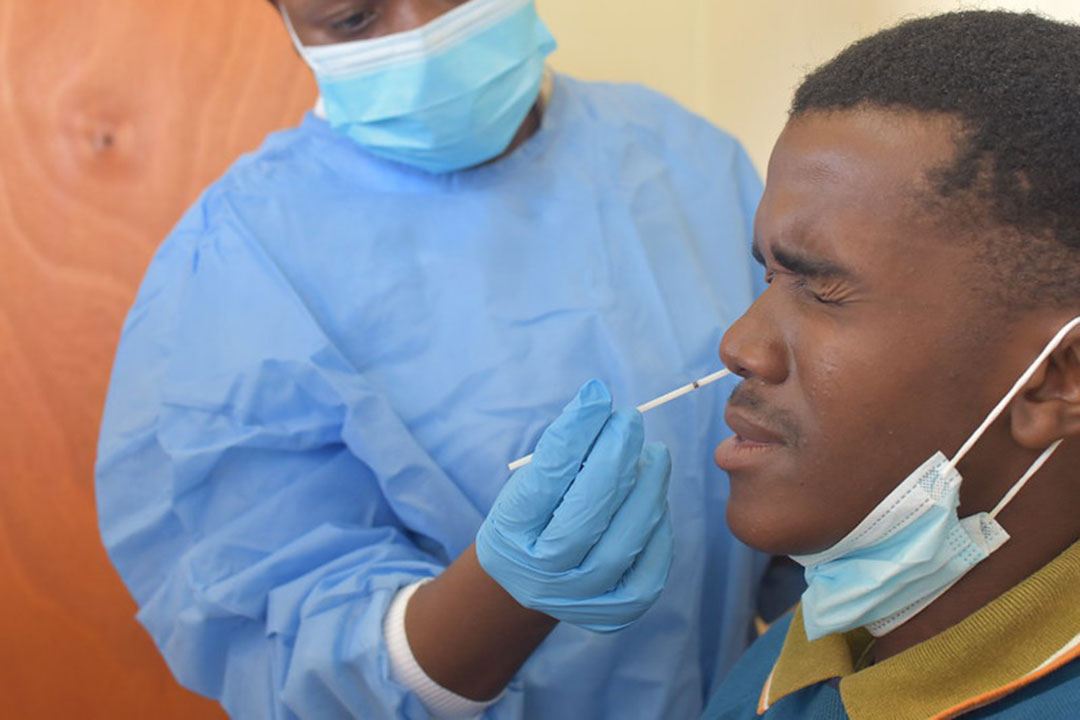Eswatini, burdened doubly with HIV and cervical cancer, targets safety for the next generation
Prevention is better than cure, say the country’s health leaders.
- 13 May 2024
- 7 min read
- by Nonduduzo Kunene

Eswatini suffers a double burden, with uncommonly high rates of both HIV and cervical cancer.
The country's HIV prevalence of 25.9% among adults is one of the highest in the world. Its age-standardised cervical cancer incidence – 84.5 per 100,000 – is the world's highest, bar none.
“Women living with HIV are six times more likely to develop cervical cancer. This is because their immune system is compromised"
– Xolisile Dlamini, National Cancer Control Programme (NCCP)
Those two disease rates are not independent of each other. Women living with HIV and the cancer-causing human papillomavirus (HPV) are more likely to contract cervical cancer than their HIV-negative counterparts with HPV. A 2017 research paper from Eswatini found that women with HIV had a much higher rate of cervical lesions (22.9%) than HIV-negative women (5.7%).
Encouragingly, another study, also from Eswatini, and published just last month in the journal PLOS Global Public Health, points to the impact a robust public health response can have. Not only did the new research show lower-than-expected cervical cancer positivity rates overall – about 2.6% across both of the regions under study – it also showed that women living with HIV who had been on anti-retroviral therapy for longer periods of time were less likely to screen positive for cervical cancer than women whose HIV had been medically managed for less than five years. Women whose HIV load had been suppressed by treatment to undetectable levels, were also less likely to screen positive for the cancer than women with unsuppressed HIV burdens.
Sights set
If those findings are encouraging, so are health policy initiatives being enacted on the ground. On 25 March 2024, Eswatini's Ministry of Health mobilised a US$ 1.6 million grant for the introduction of HPV through Gavi's Middle-Income Countries approach. This is part of a focused move to drastically reduce cervical cancer by 2030.
The Minister of Health, Mduduzi Matsebula, has stated that in the current financial year, the government is scaling up its fivefold approach to health services: promotive, preventative, curative, rehabilitative and palliative.
He explained that prevention ranged from health education for behaviour change to immunisation and screening for non-communicable diseases (NCDs) and cancers. He mentioned that the approach has already proven instrumental in the fighting against the prevalence of HIV infections, and reaching the United Nations's ambitious 95-95-95 target by 2020. The 95-95-95 target demands that 95% of people living with HIV know their status; that 95% of people with HIV who know their status are on treatment; and that 95% of people on treatment have a suppressed viral load.
Matsebula added the next step was to scale up promotion and preventive of cervical cancer, which numbers among the major killers of women in Eswatini.
Uphill battle
National Cancer Control Programme (NCCP) Manager Xolisile Dlamini stated that high rates of HIV infections in the reproductive age group, make the battle against cervical cancer an uphill battle in Eswatini – a fact that makes the HPV vaccine's introduction even more crucial.
"HPV, which is the virus that causes cervical cancer, is primarily transmitted through sexual contact, and most people are infected with HPV shortly after the onset of sexual activity. More than 90% [of infected people] clear the infection within two years without developing cervical cancer, because the antibodies fight it," Dlamini explained.
She added that it was a different case with women living with HIV. "Women living with HIV are six times more likely to develop cervical cancer. This is because their immune system is compromised," she said.
HIV increases the risk of HPV-associated cervical cancer in various ways that include increased risk of acquiring HPV infection, she added. With HIV suppressing immune function, women have a higher chance of getting infected with multiple high-risk HPV strains, which in turn can lead to a decreased likelihood of the body clearing HPV infection and, hence, an increased likelihood of persistent infection, which is a risk factor for the cancer.
There's also, she added, an "increased risk of recurrence after treatment" for this group.
Have you read?
Data from the NCCP shows that from 2016 to 2022, Eswatini recorded 1,171 cases of cervical cancers in women 15 to 49 years old. Around 500 of those women lost their lives after failing the battle with the disease.
Vaccine intro success
HPV vaccination should make a major difference. With Gavi's support, the country is targeting 80,000 school girls to take the vaccine in a two-dose regimen, in a campaign spanning 2023 and 2024; later this year, the vaccine will be made available as routine to girls aged nine.
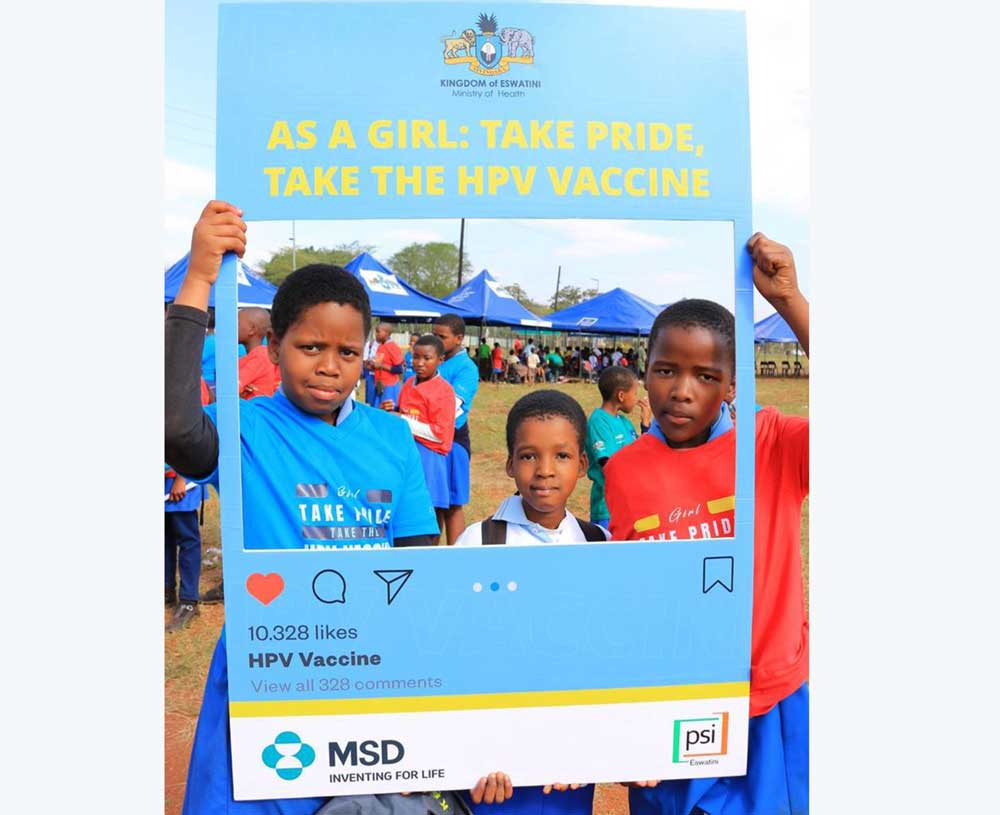
Eswatini's health leaders have also declared plans to make the vaccine available to boys from 2025.
The Minister said the introduction campaign has been a success. By late March 2024, the coverage of vaccinated girls was 63.6% of the aimed-for 80,000.
"Through the partnership [with Gavi], we could work towards coverage that is greater than 90% of the target, and ensure that all eligible girls in all corners of the country were protected and given a chance to live healthy and productive lives," said Minister of Health Matsebula.
“I do not have a wife today because of cancer. If preventative methods were available I am sure she would still be alive today.”
– Enock Tsabedze
Meanwhile, Dlamini said in April 2024, the country will scale up vaccination from 15 to 18 years, and introduce transition to routine immunisation of single dose cohort. By next year May the plan is to scale up the HPV vaccination to young boys.
Dlamini also explained that the country introduced HPV DNA testing in April 2024 to scale up the prevention of cervical cancer. According to her, prevention is a sounder investment than reliance on cure: treating cervical cancer is both costlier and less successful than heading it off.
HPV vaccine meets the frontline
The introduction of the HPV vaccine is appreciated by people who are battling cervical cancer, by their relatives and by the health care workers whose job it is to look after them.
Percis Gwebu, a health care worker, shared that she had taken upon it herself to sensitise the people in her community about the importance of the HPV vaccine.
"I work in a rural clinic, in Ndzevane and work directly with HIV-positive people – both the young and the old. Rural areas lack access to information and misinformation is likely to influence their attitude to the vaccine," she says.
Gwebu said when the school HPV vaccination drive kickstarted last year, she got wind that there was a lot of misinformation beginning to circulate.
"It was then when I knew that I have to roll up my sleeves and be part of the morning sensitisation meetings, and tell people about the importance of giving consent for their children to take the vaccine," she says.
Gwebu has seen, first-hand, what the HPV vaccine can spare a girl. She recalled the first time she assisted a patient who was severely ill with cervical cancer. It was one of her first years on the job, and she struggled to hide her shock: "I remember entering a room and I was hit with a serious smell. I had to take her blood samples and other body fluids for testing at the laboratory as means of treating her. I tried to be professional – in terms of the smell – but I could see the other people who were there. I could tell that she was feeling worse than everyone else. Being a health care worker means giving hope where you see there is none, and that is what we deal with in clients who are found with cervical cancer at an advanced stage," she says.
Enock Tsabedze told VaccinesWork, "I do not have a wife today because of cancer. If preventative methods were available I am sure she would still be alive today."
Tsabedze lost the mother of his three sons in 2016 to cervical cancer. Eight years later, he says he still has visions of her tossing and turning at home after she was told that her cancer was at an advanced stage, and that she was beyond hope of a cure.
Tsabedze shared that his wife had suffered with inconsistent bleeding and complained of pain in the pelvic area. In 2010, they started visiting hospitals, seeking help.
"I don't know whether she got better, but I believe she got tired of seeing us and the children worried. It was late 2015 when we learned that she was at stage five of cervical cancer. I asked what form of treatment was available and they told us that the survival stage at this point was 5% and she refused to try it. She was tossing, day in and out. March 26, 2016 was horrible, because she was tossing and screaming. And the day she stopped, my wife was gone," he said.
He added that he has granddaughters from two of his sons – and that he would make it his mission to make sure they were vaccinated.
More from Nonduduzo Kunene
Recommended for you



